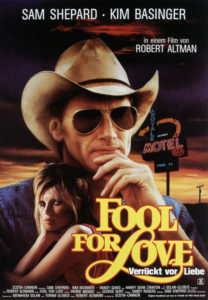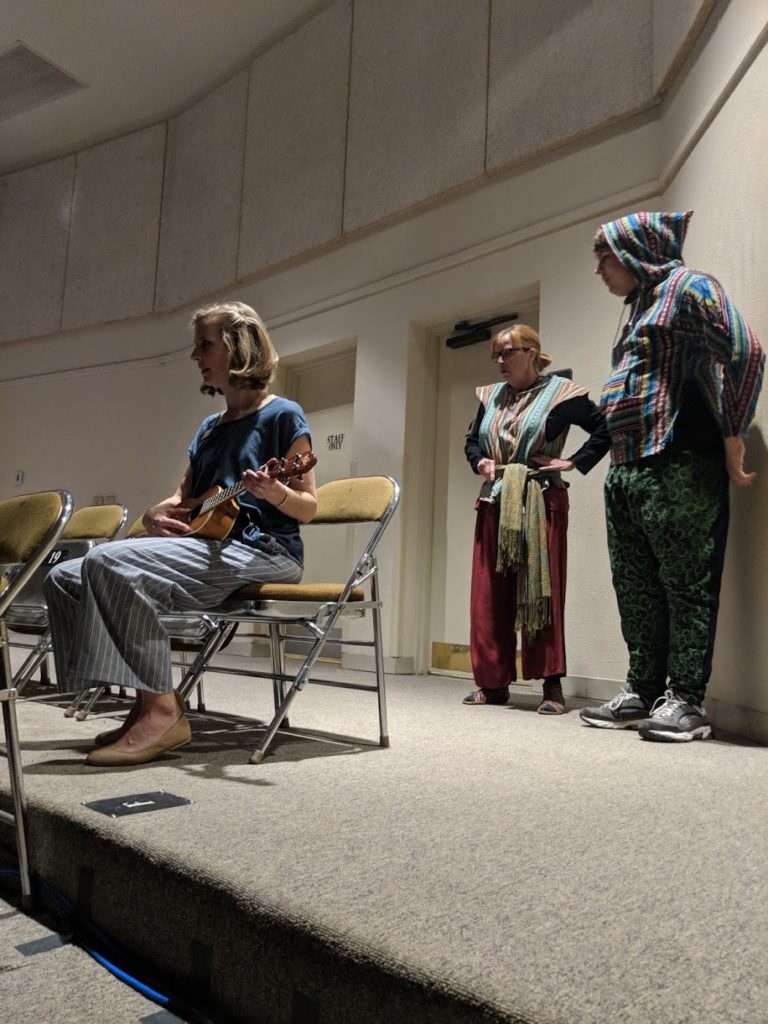Patron Todd Barnell attended our recent Soiree where we previewed scenes from the 2018 Season: Flesh and Blood. Directors were able to talk about their upcoming productions and Dawn Tucker, Executive Director, shared her vision for a Titus Andronicus focused on the very personal stories of these families, the dark humor of the play, and a female Titus who can tell this story of a war veteran from the perspective of a mother (an increasingly more common tale). Todd shared this letter with us, and we wanted to share it with you!
“Thank you for inviting me to the Flagstaff Shakespeare event. I was so fascinated by the approach you will be taking with Titus. I’ve never seen it performed, but I did read it (quite a few years ago) and have also read various discussions about it. I actually read [Titus] first, then read some articles. That was an interesting experience for me because I found myself…well, rather shaken after just reading it. But then I read a few people … talking about how it was actually an extraordinarily dark, but still terribly humorous, play. Being someone who tends to be a little too literal at times, I must admit I missed the humor in my read-through! One of the many things I love about your vision (and others on your team) is how you are including music. I also really like your idea of casting a woman in the title role, and your reasoning behind that choice. I think that is going to create a really interesting feel.
As excited as I am to finally see Titus, I must admit I am almost sick with anticipation about The Tempest. It is funny, but I’ve found myself thinking about that play quite a bit recently. When I was asked to present at this year’s Robert Burns Night, I developed a talk called Burns Without Borders, where I explored the global legacy of Scotland’s Bard. My story was actually personal, as I was exposed to his poetry back in the 80s by a professor I revered. I was majoring in African Studies at the time, and my mentor, who was an Ibo from West Africa, took me under his wing. He set up special office hours with me where he introduced me to his language, and gave me a variety of poems and plays to read, as well as political and historical articles. Well, in addition to introducing me to Burns, he also introduced me to Shakespeare, giving me a copy of The Tempest. I guess that set the stage for my odd relationship with Shakespeare: I’ve read a lot more of his plays than I’ve ever actually seen. I’ve rarely found myself in a situation where I had the chance to actually see any of his plays performed, which is why I was over the moon when you started FlagShakes! (Actually it wasn’t until the late 90s that I finally got to see some Shakespeare on stage. Patrick Stewart came to Indianapolis and performed his one-man show “Heavy Lies the Crown.” I nearly died with joy.)
Anyway – I’m terribly excited about this season and I can’t wait to see what you and your amazingly talented team put together!”
–Todd Barnell
When I first pick up a script and start to work on a character, I look for commonalities between myself and my experiences and the character and their experiences. I recognized May immediately. May was the darkly romantic vision I had of myself at 30 when I was 16. When you hear her story, it sounds thrilling. No attachments, no responsibilities, unbridled passion. In reality, it’s a very sad life. No family, no career, no stability.
As a feminist, I’m always interested in my character’s emotional, intellectual, and creative life, not just her romantic life. The thing with May is, she doesn’t have any passions besides Eddie. Often, in Shakespeare, I have played women who are very similar to May. Hopelessly in love and with no real idea of their future outside of the men they are aligned with. Somehow, May is more helpless than any of them. And this play definitely doesn’t pass the
Bechtol test. So, how, as a feminist, do I approach this kind of play?
It’s a strange thing for me, a woman with so many passions outside of romance. Happily, I have someone I choose to share my life with, but many of my pursuits are entirely independent of him, like teaching, creating, and learning. But just as strongly as I believe women have a right to agency outside the home, I believe the stories of women who live their lives for and with others deserve to be told. Their voices are not to be silenced; their lives are not of any less value. Now, I know a man wrote May and I know Shakespeare was a man as well, but to me, characters have lives beyond their authors, and it is an actor’s job to bring them fully to life.
Telling May’s story begins with a setting aside of judgments so that I can work on understanding her and, eventually, loving her enough to do justice to her story. It’s important because May’s story is full of truths that mirror the lives of many women — from the Renaissance to today. And they all deserve to have their stories told.
At our founding, our mission included a commitment to “Shakespeare and classics of the American stage.” Recently, we expanded that to “Shakespeare and other actor-driven plays.” Still, for our first non-Shakespeare production, it seemed right to honor a playwright of the American stage and, more specifically, the American Southwest.
Sam Shepard, who passed away last year, was nominated for a Pulitzer Prize for Fool for Love, a play that explores the very American themes of identity, Western culture, and rootlessness. When news of Shepard’s passing reached me, I thought immediately how appropriate it would be to honor him by choosing one of his plays for our first non-Shakespeare show. Fool for Love was a play Shepard both directed and acted in, so it is especially appropriate to honor him with a presentation of this desperate and passionate drama about love and family.

With biting humor and riveting passion, Fool for Love asks us to take a hard look at our own family legacy. And that’s the way Sam Shepard saw the world: desperate, passionate, humorous, and biting. The two lovers in Fool (or perhaps, the two fools), Eddie and May, embody the harsh realities and stark beauties of life in the 1980s Southwest. They are Shepard’s “star-crossed lovers,” and that makes this story a perfect fit for FlagShakes.
Another reason this play works so well for FlagShakes is the surrealism of the presence of the “Old Man,” a character who existed in Eddie and May’s pasts and whose presence is still so visceral that, even though neither of them has seen him in 15 years, he participates in the action of the play. The “Old Man” also talks directly to the audience. This character who is both of and not of the world of the play and who speaks to the audience directly reminded me very much of many Shakespearean characters; the ghost of Hamlet’s father, Gower in Pericles, Lear himself.




